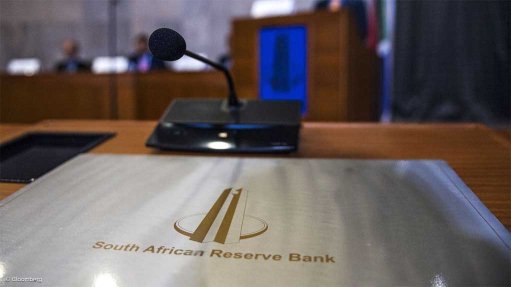What’s holding back Tanzania’s recovery?
By: Fiona Grant
The World Bank states that Tanzania has benefited from “strong macro fundamentals” and emerged from the Covid-19 pandemic and resulting global financial turmoil in a strong position. However, the East African country’s economic recovery remains modest. So, what’s holding it back?
In its ‘Africa’s Pulse’ report, released on April 8, the World Bank announced that the East African Community (EAC) would experience the fastest rate of growth in sub-Saharan Africa in 2024. Decreasing inflation and increasing private consumption are anticipated to drive regional growth, with the EAC likely to achieve average gross domestic product (GDP) growth of 5.3% in the coming year. The report forecasts that Kenya and Uganda will contribute 0.25% and 0.12% respectively to regional growth in 2024, while Ethiopia is expected to contribute 0.39% and Tanzania 0.19%.
The report identifies Tanzania as a “non-resource-rich country”, which is surprising, given the sizable energy and mining opportunities on which Tanzania has sought to capitalise. Most notable of these is its $42-billion liquefied natural gas (LNG) project, which has seen Tanzania engage with Shell, Equinor and Exxon Mobil. Alongside development of its offshore gas reserves, Tanzania has successfully revived its mining sector, with government aiming to increase mining sector contributions to 10% of GDP by 2025.
Tanzania’s mining sector has been relatively successful since the transition of power from controversial and interventionist former President John Magufuli (2015 to 2021) to his deputy and now President, Samia Suluhu Hassan (2021 to date), following Magufuli’s death in March 2021. During Hassan’s tenure, the Tanzanian government has signed over $1-billion in mining contracts, including a deal totalling $667-million with three Australian companies for graphite and rare-earth mineral mining contracts in April 2023.
Despite these successes and opportunities to drive growth, mining and energy-sector actors in Tanzania have complained of poor relations with government Ministries and their regulators. In February, Shell and Equinor cautioned the Tanzanian government that there is limited time to capitalise on the demand for fossil fuels, specifically its natural gas reserves, and that any further delays could endanger its viability.
Tanzanian government officials initialled a draft Host Government Agreement (HGA) in May 2023; however, the process has ground to a halt, as Energy Ministry bureaucrats who felt cut out of the negotiations kicked back at the HGA. Energy Minister Doto Biteko confirmed that, as of February, the HGA remains under negotiation, while private-sector partners assert that negotiations have concluded. An investment decision, previously targeted for 2025, now seems a distant dream, alongside the $7-billion annual contribution to GDP that the project was forecast to generate.
While opportunities abound, Tanzania appears to be fumbling its economic head-start. Chief among the complaints from mining and energy-sector actors is the resource nationalist stance Tanzanian bureaucrats have maintained, despite a change of leadership and Hassan’s “open for business” and pro-foreign investment stance.
One explanation for Tanzania’s failure to capitalise on these opportunities is a relatively weak executive. Hassan, now famous for her tactical and highly calculated Cabinet reshuffles, has failed to bring Tanzania’s ruling Chama Cha Mapinduzi (CCM) party into line. Political attention and the eyes of those in contention for political positions in Tanzania have already turned towards local elections scheduled for December this year and Presidential elections in 2025.
In her most recent Cabinet reshuffle on April 3, Hassan appointed former party treasurer Amos Makalla as the new CCM secretary for ideology and publicity. Makalla replaces Paul Makonda, who was relegated on March 31 to the position of Arusha’s regional commissioner. Makonda served as the ideology chief from October 2023 but was a controversial appointee. The US blacklisted him in January 2020 for committing “gross violations of human rights” in the role of regional commissioner of Dar es Salaam.
Makonda’s appointment was perceived as a backslide of Hassan’s reversal of her predecessor’s politics. Magufuli’s era was marked by insularity and an antagonistic rejection of Western social ideals such as gay rights and the inclusion of young mothers in public education drives. Rather than reversing Hassan’s liberal push, the appointment of a controversial figure like Makonda may have been a bid to reconcile the fractured CCM party and appease the CCM faction that continues to tout the ideology behind Tanzania’s resource nationalism, which brought its mining sector to a grinding halt in 2016.
Makonda is not the only Magufuli-faction figure in power within the party and the resource nationalist stance appears diffuse in Tanzania. On April 12, Tanzania Investment Centre head Gilead Teri celebrated the launch of a joint investment project between the Mwanza-based Tanzanite Hospital and India-based ES Health Africa, highlighting that joint ventures enable growth without requiring the Tanzanian government to borrow funds or seek foreign investors for a project.
However, Teri’s analysis fails to take into account the necessity of foreign debt or investment to achieve Tanzania’s larger-scale infrastructure projects, known as Mega Projects.
Local and Presidential elections have stolen the wind from the sails of the LNG project. The question remains whether Hassan can secure her second term and command those winds again.
Grant is a consultant at Africa Risk Consulting. She specialises in social, political and security challenges in East Africa, with a particular focus on the Swahili coast – fiona@africariskconsulting.com
Article Enquiry
Email Article
Save Article
Feedback
To advertise email advertising@creamermedia.co.za or click here
Press Office
Announcements
What's On
Subscribe to improve your user experience...
Option 1 (equivalent of R125 a month):
Receive a weekly copy of Creamer Media's Engineering News & Mining Weekly magazine
(print copy for those in South Africa and e-magazine for those outside of South Africa)
Receive daily email newsletters
Access to full search results
Access archive of magazine back copies
Access to Projects in Progress
Access to ONE Research Report of your choice in PDF format
Option 2 (equivalent of R375 a month):
All benefits from Option 1
PLUS
Access to Creamer Media's Research Channel Africa for ALL Research Reports, in PDF format, on various industrial and mining sectors
including Electricity; Water; Energy Transition; Hydrogen; Roads, Rail and Ports; Coal; Gold; Platinum; Battery Metals; etc.
Already a subscriber?
Forgotten your password?
Receive weekly copy of Creamer Media's Engineering News & Mining Weekly magazine (print copy for those in South Africa and e-magazine for those outside of South Africa)
➕
Recieve daily email newsletters
➕
Access to full search results
➕
Access archive of magazine back copies
➕
Access to Projects in Progress
➕
Access to ONE Research Report of your choice in PDF format
RESEARCH CHANNEL AFRICA
R4500 (equivalent of R375 a month)
SUBSCRIBEAll benefits from Option 1
➕
Access to Creamer Media's Research Channel Africa for ALL Research Reports on various industrial and mining sectors, in PDF format, including on:
Electricity
➕
Water
➕
Energy Transition
➕
Hydrogen
➕
Roads, Rail and Ports
➕
Coal
➕
Gold
➕
Platinum
➕
Battery Metals
➕
etc.
Receive all benefits from Option 1 or Option 2 delivered to numerous people at your company
➕
Multiple User names and Passwords for simultaneous log-ins
➕
Intranet integration access to all in your organisation





















